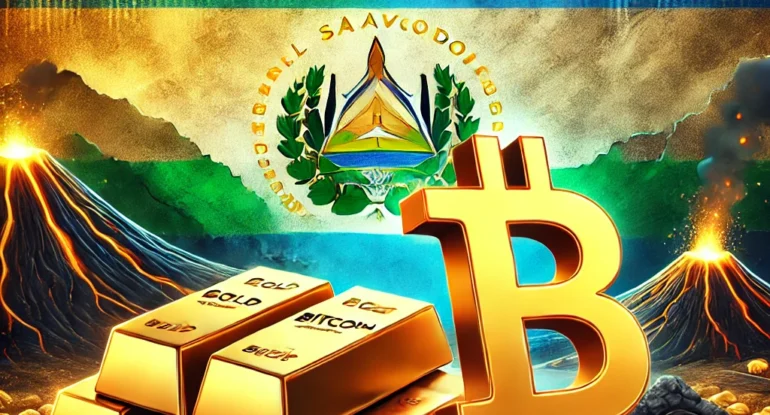El Salvador’s $3 Trillion Gold Discovery: A Game Changer for Bitcoin Reserves?

El Salvador has unveiled a monumental gold discovery valued at $3 trillion, potentially reshaping its economic and financial strategies. Announced by President Nayib Bukele, the find has sparked discussions about whether this newfound wealth could bolster the nation’s Bitcoin reserves, a move that may have far-reaching implications for global cryptocurrency markets.
A Golden Opportunity to Reshape National Strategy
The discovery includes an estimated 50 million ounces of gold across just 4% of El Salvador’s mining areas, equating to a staggering $131 billion—approximately 380% of the nation’s GDP. Beyond gold, the reserves also include valuable minerals like gallium, tantalum, and tin. These resources could strengthen El Salvador’s financial position, with experts suggesting that strategic sales of these materials could fund the country’s Bitcoin investments.
Converting Gold to Bitcoin: A Strategic Financial Move
Bitcoin expert Max Keiser has proposed a bold strategy, suggesting El Salvador monetize its gold reserves by issuing 0% convertible preferred shares and using the proceeds to purchase Bitcoin, particularly while the cryptocurrency remains under $200,000. As the first country to adopt Bitcoin as legal tender, El Salvador has positioned itself as a pioneer in the crypto space. Increasing its Bitcoin holdings with gold-backed funding could help stabilize cryptocurrency market volatility, a critical factor as institutional adoption accelerates.
Environmental and Policy Considerations
The gold discovery has reignited debates about El Salvador’s 2017 mining ban, with calls to revise the policy. Pierre Rochard, Riot Platforms’ research VP, highlighted a key distinction: while mining gold increases its above-ground supply and dilutes its value, Bitcoin’s supply is capped by its code, making it immune to such effects. These discussions will likely influence how El Salvador approaches both gold mining and cryptocurrency accumulation.
Future Impacts on Wealth and Market Dynamics
President Bukele has expressed interest in leveraging eco-friendly mining methods for extracting these resources. By potentially converting gold into Bitcoin, El Salvador could reduce cryptocurrency market swings and position itself as a major player in the global digital asset economy. This strategy aligns with Bukele’s vision of using innovative methods to solidify the nation’s economic future and enhance its financial independence.
Conclusion
El Salvador’s $3 trillion gold find is more than just an economic boon—it represents a pivotal moment in the nation’s financial evolution. With strategic planning and investments in Bitcoin, the country could mitigate market volatility and strengthen its role as a leader in cryptocurrency adoption. The coming years will reveal whether this gold discovery truly becomes a golden opportunity for the crypto world.









